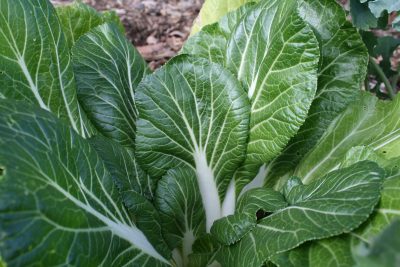Winter Vegetables

Winter vegetables like lettuce, spinach, Swiss chard, cabbage, kale, and broccoli not only provide you with food, they also look beautiful planted right in the middle of your established landscape.
Most Central Texas gardeners plant these from late summer through fall, but if you got a late start or want to plant a second crop, there is still time to plant in January and February.
Most local nurseries carry these cold hardy vegetables all winter long, so you don’t have to worry about sprouting seeds.
Also, there’s really no need to plant vegetables in rows unless you just want to. A grouping of lettuces, Swiss chard, kale, and broccoli look right at home beside fall asters and Salvia greggii in your front flower bed. Include them among your perennials, which will live below ground all winter anyway, so there won’t be any competition for space. They’ll fill that dormant space with beauty that you can eat!
The leaves of winter edibles, which are what we eat on many of them, are truly striking and provide brilliant color to what might otherwise be a drab winter landscape. Winter vegetables are naturally very resistant to cold temperatures, but an added benefit of having them planted among your landscape is that they’re more protected if we get any truly cold temperatures, especially if they’re well mulched, so there won’t be much need to protect them on cold nights, even if we’re down in the 30’s. But if you want to be extra careful, protecting with light row cover should do the trick.
You can also leave them past their prime harvesting when weather warms. As they prepare to flower and ultimately die, they shoot up into the sky, a process known as bolting, to provide a striking, architectural element to the garden for a brief period. Their flowers will also feed beneficial insects. As they end their life cycle, aphids will arrive on many. If you can, leave those plants to attract ladybugs to deposit their eggs for larvae that rely on aphids. Once they pupate, you’ll have adult ladybugs around to fend off insects as the season progresses.
categories:
tags:
- Aphids +
- Cooking +
- Insects +
- Kale +
- Swiss Chard +
- Vegetables +
- Winter
